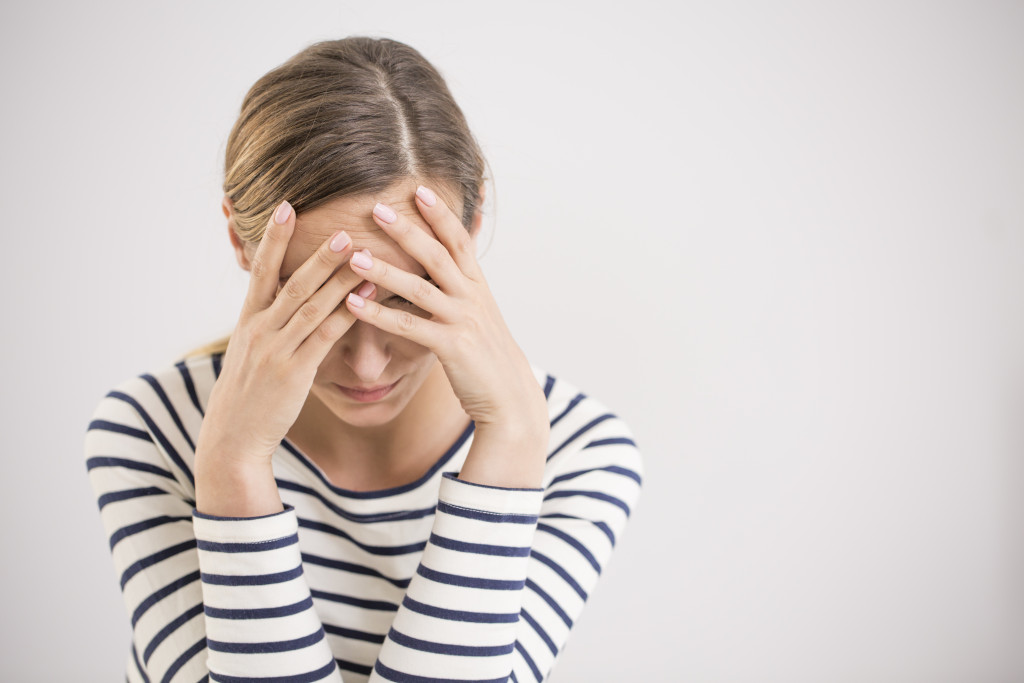Anxiety is a creeping mood and one that brings a lot of problems among people. It can cause panic attacks and make daily tasks difficult to accomplish. Women, unfortunately, are more prone to experiencing anxiety.
Women are twice as likely as men to be diagnosed with an anxiety disorder, and there are a few reasons why this may be the case. Several factors can contribute to anxiety in women, from hormones to social conditioning. Keep reading to learn more about the five most common reasons for women’s anxiety.
Hormonal Changes
One of the most common reasons for women’s anxiety is hormonal changes. These changes can occur during puberty, pregnancy, perimenopause, and menopause, and they can cause various symptoms, including mood swings, insomnia, hot flashes, and more. While some of these changes are natural and normal, they can still be disruptive and cause anxiety.
Social Conditioning
From a young age, girls are often taught to be caretakers and pleasers instead of independent thinkers. This social conditioning can lead to feelings of inadequacy and insecurity, which can, in turn, lead to anxiety. If you constantly worry about what other people think or whether or not you’re meeting their expectations, it may be time to reevaluate your priorities.
Family History
Anxiety can also be hereditary, so if you have a family member who suffers from an anxiety disorder, you may be more likely to experience anxiety. This doesn’t mean that you will develop an anxiety disorder if someone in your family has one, but it is a risk factor that should be considered.
Stressful Life Events
Stressful life events such as divorce, job loss, or the death of a loved one can trigger anxiety disorders in susceptible individuals. These events can cause uncertainty and helplessness, leading to panic attacks and other forms of anxiety.
Physical Illness
Certain physical illnesses can also lead to anxiety disorders. For example, thyroid problems or heart disease can cause symptoms like irregular heartbeat or shortness of breath, triggering panic attacks in some people. If you’re experiencing physical symptoms that are causing anxiety, make sure to see your doctor so they can rule out any underlying medical conditions.
If you’re struggling with anxiety, know that anxiety disorders are some of the most common mental health conditions in the United States. And while there is no one-size-fits-all solution for managing anxiety, some available treatments can deal with it. Here are some of them.

Ketamine
Ketamine is a newly FDA-approved treatment for anxiety, particularly in cases where traditional medications and therapy haven’t been effective. It is administered intravenously or intranasally and can provide rapid relief from anxiety symptoms. Ketamine treatment has been known to have various benefits. Here are three benefits that come with this new treatment.
Fewer Side-effects
When substances are used for treatment, it’s pretty often people experience many unpleasant side effects. But, ketamine has proven to have fewer and milder side effects compared to traditional medications used for anxiety.
Rapid Relief
Many traditional medications can take weeks or even months before they start showing any effects on the patient’s symptoms. But, with ketamine infusions, relief can be felt in as little as a few hours or days.
Long-Term Benefits
Not only does ketamine provide immediate relief from anxiety symptoms, but it has also been shown to have long-lasting benefits in reducing anxiety over time.
While ketamine is not a cure for anxiety disorders, it can provide much-needed relief for those who haven’t found success with other treatment methods.
Cognitive Behavioral Therapy
CBT is a talk therapy that focuses on identifying and changing negative thought patterns contributing to anxiety. It can also teach coping mechanisms to deal with anxious thoughts and triggers. Here are ways CBT can help deal with your anxiety:
Recognize Negative Thought Patterns
CBT helps to identify any irrational or exaggerated thoughts that contribute to anxiety. By recognizing these patterns, you can challenge and change them to have a more positive outlook.
Coping Mechanisms
Through CBT, you can learn coping strategies such as deep breathing and mindfulness to deal with anxious thoughts and triggers at the moment.
Medication
Various types of medication can be used to treat anxiety, including selective serotonin reuptake inhibitors (SSRIs), serotonin-norepinephrine reuptake inhibitors (SNRIs), benzodiazepines, and tricyclic antidepressants. These medications can help alleviate symptoms, but it’s important to note that they work best in conjunction with therapy.
Finding the right treatment for your anxiety can be a trial-and-error process, but options are available for managing it. Whether through talk therapy or medication, seeking treatment is essential to finding relief from anxiety symptoms. Don’t hesitate to reach out for help; remember—you are not alone.

